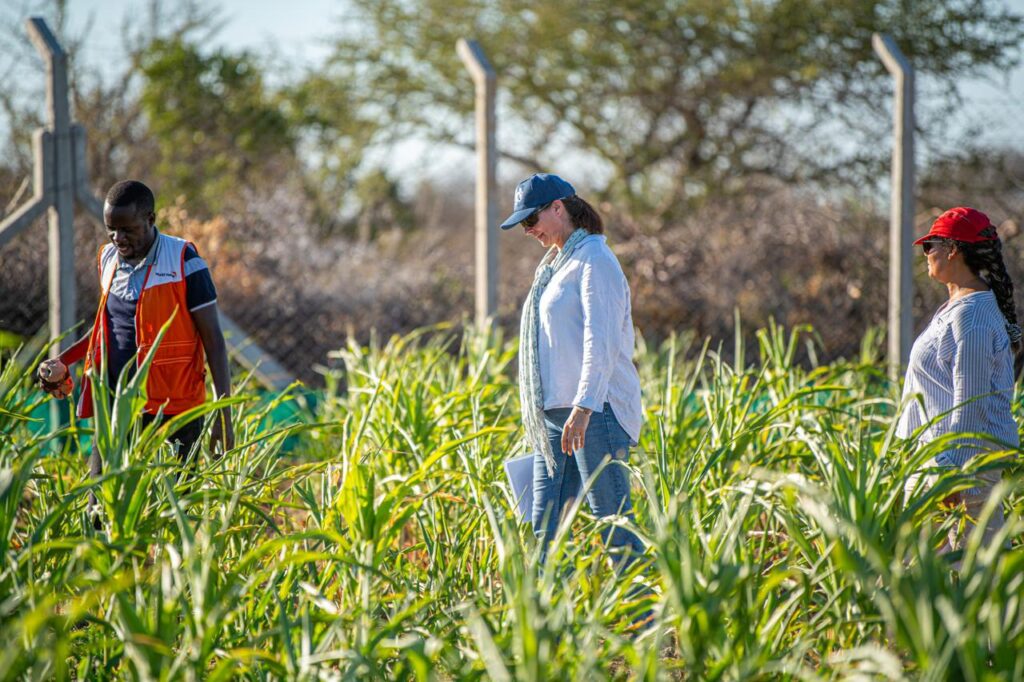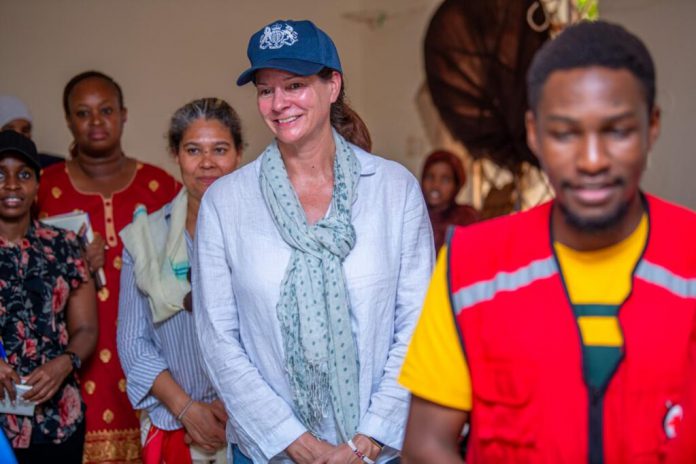NAIROBI, Kenya Nov 1 – The British Deputy High Commissioner and Development Director, Leigh Stubblefield, visited Dadaab Municipality in Garissa County this week to witness the impact of UK humanitarian assistance through the Pamoja programme, which promotes social and economic integration between refugees and host communities.
Launched in 2018, the Pamoja programme represents a Ksh4.6 billion (£28 million) investment from the British High Commission, supporting refugees and asylum seekers in Kakuma Municipality and the Dadaab refugee camps.
The funding has enabled the UNHCR, the UN Refugee Agency, to provide essential services including health care, nutrition, water, sanitation, and initiatives to prevent and support survivors of gender-based violence (GBV). It also addresses child protection and offers assistance to persons with specific needs, including those with disabilities.
During her visit, Stubblefield observed the registration process for asylum seekers and witnessed the distribution of core relief items, such as blankets, cooking utensils, and solar lamps, for newly arrived refugees at Ifo 2 camp. She engaged with two refugee-led community-based organizations, Halgan and MonyQadow, learning how they are actively working to combat GBV.
These organizations operate a rescue center for survivors and conduct mentorship sessions for teenage mothers.
Reflecting on her visit, Stubblefield stated, “In Dadaab this week, I saw first-hand the vital importance of support for UNHCR and other organizations that empower refugees to build lives and livelihoods alongside their host communities. It was heartwarming to see children enjoying themselves in child-friendly spaces at Hagadera. Thanks to UK support, refugees and their Kenyan neighbors can access quality healthcare at the Ifo 1 hospital, utilize water ATMs, and benefit from livelihood opportunities.”

She emphasized the UK’s commitment to collaborating with Kenya to fulfill its obligations under the Global Refugee Compact, which serves as a blueprint for governments, international organizations, and stakeholders to ensure that host communities receive the necessary support while enabling refugees to lead productive lives. Stubblefield expressed optimism about delivering on these goals in partnership with the Kenyan government through the Shirika plan.
William Ejalu, the UNHCR Head of Sub-Office, noted, “Funding from the UK Government is ensuring life-saving activities can continue. Here in Dadaab, multi-year funding allows us to plan effectively and implement activities that positively impact the lives of refugees and the communities hosting them.”
The Pamoja programme aligns with the UK’s long-term aim to reduce humanitarian needs by providing sustainable solutions for refugees and enhancing the resilience of both refugees and host communities.
Source: capitalfm








